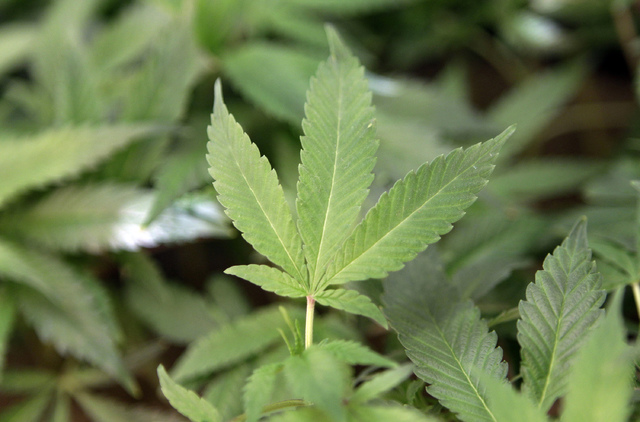As the state’s medical cannabis dispensary program gets underway, one lawmaker is proposing a twist — limiting purchases to dispensaries only. ADVERTISING As the state’s medical cannabis dispensary program gets underway, one lawmaker is proposing a twist — limiting purchases
As the state’s medical cannabis dispensary program gets underway, one lawmaker is proposing a twist — limiting purchases to dispensaries only.
House Bill 1680, introduced by Oahu Democrat Rep. Marcus Oshiro, would prohibit patients from growing their own medical marijuana and instead require them to obtain it through a state-licensed dispensary.
“Continuing to allow qualifying medical marijuana patients to grow marijuana at home will undermine the dispensary system … by obstructing the ability of the state to adequately monitor the distribution of this product,” the bill reads.
Oshiro told the Tribune-Herald the measure would help law enforcement regulate and control the drug — and also keep it away from youths. Once a regulated dispensary system is established, he said, there would be adequate means for patients to access cannabis, and “no need for any home-grow by patients and caregivers.”
The law as proposed would take effect July 1, 2017, nearly a year after licensees are able to begin dispensing. In 2018, under existing law the caregiver program will be eliminated.
“(With this bill) you’ve addressed the access and availability issue, at the same time you’ve ensured the supply of safe medical marijuana remains available,” Oshiro said. “But it’s not at the expense of overexposure to the community — especially, the adolescent community.”
The bill had its first reading last week and will be assigned to committees next week. Already it has opponents.
Andrea Tischler, chairwoman of the Big Island chapter of Americans for Safe Access, called the bill the “worst nightmare for the patient that you can possibly imagine,” particularly for low-income patients.
Many of the roughly 5,000 Big Island patients — about 40 percent of patients statewide — are low income. Tischler thinks most would simply purchase marijuana illegally.
“The bottom line is, are low-income or fixed-income people going to be able to buy their cannabis at a dispensary at that price?” she said.
“No way. They’re going to keep buying it from the black market.”
“For the patients who are capable or have the facility to grow cannabis for themselves, (growing) provides them with low-cost, affordable cannabis for their own personal use,” she added. “To take that away from them would be detrimental — it would cut them off.”
Two Big Island physicians also renounced the measure. Charles Webb, who operates the Medical Use of Marijuana clinic, called the proposal “foolish and selfish.” State Sen. Josh Green, a Democrat who represents Kona and also a physician, thinks it’s immoral.
“(The bill) is saying that dispensaries are more important than medication, and it’s more concerned about a few people than the patients who need the medication,” Webb said. “There’s no reason for them to monitor anything.”
“We should never tell a patient they can’t afford their medicine,” Green said. “This falls into that category. For someone on fixed income with metastatic lung cancer, there’s no way they’d be able to afford prices at a dispensary. So as a doctor I think this would be very heartless.”
Oshiro said he’d look at ways to address the potential access issue, such as a price regulation system or public assistance.
“I’ve always been concerned about the person who’s diagnosed or whose doctor recommends they should use it for their illness, but it’s too expensive,” he said. “We should make it available for them.”
The Department of Health is accepting dispensary license applications online through 4:30 p.m. Jan. 29.
The department will select licensees by April 15 which can then begin dispensing on July 15.
Hawaii County received two dispensary licenses. Each dispensary licensee can operate up to two production centers and two retail dispensing locations.
Email Kirsten Johnson at kjohnson@hawaii
tribune-herald.com.



